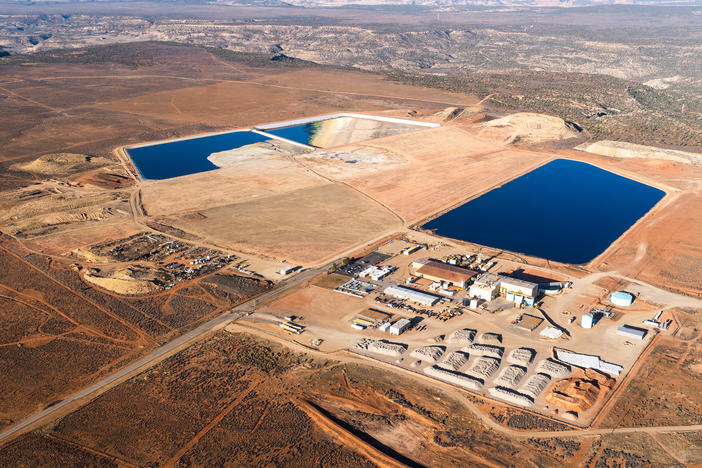Section Branding
Header Content
White House Is Preparing To Give Back California's Smog-Busting Powers
Primary Content
California may regain the right to set its own vehicle emissions standards as part of the Biden administration's push to reverse Trump-era environmental policies.
Transcript
STEVE INSKEEP, HOST:
For decades, California has been setting its own greenhouse gas standards for vehicles, and California has been a leader. Fourteen states and the District of Columbia followed California standards, which are higher than federal standards in many ways. The Trump administration took away the state's authority to determine its own rules, but now the Biden administration plans to give that power back. NPR's Camila Domonoske is with us now. Good morning.
CAMILA DOMONOSKE, BYLINE: Good morning, Steve.
INSKEEP: I guess we should begin by detailing how California has been different.
DOMONOSKE: Yeah, I mean, they've been incredibly influential. They're the only state that has this power from the EPA to set their own rules, and that's because back when the EPA started, California was already fighting an epic battle against smog and setting policy on these issues. And they've kept this ability as California has ramped up efforts against climate change, mandating electric vehicles. You mentioned all these other states that adopt California's policies, even though they can't set their own. Together, that's more than a third of the U.S. auto market, so California has the ability to put pressure on the U.S. auto industry almost single-handedly.
INSKEEP: And then the Trump administration came in a bit more than four years ago and did not like California having this power.
DOMONOSKE: That's right. President Trump both reduced the federal requirements for clean cars and tried to take away California's ability to set a higher bar. And it's interesting. The auto industry had been complaining that the requirements were too high, but what Trump gave them was more than they bargained for, and it actually split the industry. You had some carmakers stick with California and adopt higher standards with them while the rest of the auto industry backed Trump in a lawsuit that said California didn't have the right to set its own standards, and there were just lawsuits flying everywhere.
INSKEEP: OK, so - big mess, and now the Biden administration says, wait, we're going to flip the switch back. How does that resolve the situation?
DOMONOSKE: Well, it makes it clear that California does have this right that it has long had to set its own policies. Now, I spoke to Sandra Purohit, the director of federal advocacy at E2. That's a business group that supports environmental policies. And she noted, it is still not clear what the federal policy will be under Biden when it comes to vehicle emissions and fuel economy.
SANDRA PUROHIT: But allowing the states to move forward with this kind of authority means that, regardless of what the federal standard is, states can still innovate. States can still push the envelope. And that's a really important part of the history and hopefully the future as well.
DOMONOSKE: So, again, big question what the federal rules will be, but this gives California back its negotiating lever in moving forward.
INSKEEP: Well, let's talk about the automakers here before we go, because you mentioned the automakers weren't totally thrilled before Trump, then they weren't totally thrilled during Trump. How do they feel now?
DOMONOSKE: Well, they're no longer split. Support for the doomed Trump position has evaporated, so automakers agree that California should have its waiver back, but they would much rather have a single unified standard. Under Obama, there were actually intense negotiations to get California and the feds on the same page, which automakers really appreciated. They, again, would like to see these policies not be as strict as they were under Obama, but they'll almost certainly be stricter than they were under Trump.
INSKEEP: NPR's Camila Domonoske, thanks so much.
DOMONOSKE: Thanks, Steve.
(SOUNDBITE OF MENISCUS' "DATURAS") Transcript provided by NPR, Copyright NPR.
Bottom Content



